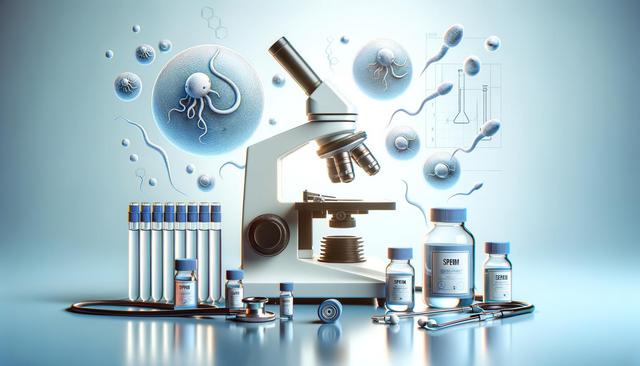How Sperm Donation Can Become a Source of Income
Sperm donation is a unique way to support others on their journey to parenthood while also earning compensation.

Understanding the Basics of Sperm Donation
Becoming a sperm donor involves more than simply making a deposit at a clinic. It is a detailed process governed by strict screening, medical evaluation, and legal guidelines. Clinics and sperm banks look for healthy individuals who meet specific age and lifestyle criteria. Typically, donors must be between 18 and 39 years old, nonsmokers, and free of sexually transmitted infections. These requirements ensure the health and safety of both donors and potential recipients.
Potential donors undergo a comprehensive screening process that includes:
- Medical history review for genetic or hereditary conditions
- Physical examination and blood tests
- Semen analysis to measure sperm count and motility
- Psychological screening to assess mental health and motivation
Only a small percentage of applicants are accepted due to these strict criteria. However, for those who qualify, sperm donation can serve as a consistent side income while contributing to something meaningful.
Financial Compensation and What to Expect
One of the main motivators for sperm donation is the financial compensation offered. While the amount varies by location and clinic, donors are typically paid per sample. Frequent donors, especially those who commit to ongoing donations, may earn a steady monthly income. Some clinics also offer bonuses for consistent participation or for samples with high sperm counts.
On average, donors can expect to earn compensation for:
- Each approved sperm sample
- Time and travel to and from the clinic
- Long-term participation in donor programs
It’s important to remember that this is not a get-rich-quick opportunity. Regular donations are encouraged, often requiring a commitment of several months. Clinics may also request that donors abstain from sexual activity for 2-3 days before each donation to optimize sperm quality, adding a level of discipline to the process.
Legal and Ethical Considerations
Before becoming a donor, it’s essential to understand the legal implications involved. Sperm donors are generally required to sign documents relinquishing any parental rights to resulting offspring. This protects both the donor and the recipient families from legal complications in the future. Clinics often provide legal counseling or referrals to help donors understand these agreements.
Ethical considerations also play a role. You should be comfortable with the idea that your donation may help create children you may never meet. Transparency and informed consent are critical in this process. Anonymous donation is common, but some programs now offer open-identity options, allowing offspring to contact donors once they turn 18, depending on the jurisdiction and agreement.
Key things to consider include:
- Legal contracts and termination of parental rights
- Anonymity vs. open donation options
- Your personal ethics and comfort with the process
Health Requirements and Lifestyle Factors
To maintain eligibility, donors must commit to a healthy lifestyle. This includes regular exercise, a balanced diet, and avoiding harmful substances. Habits such as smoking, excessive alcohol intake, or drug use can disqualify candidates, as these factors negatively affect sperm quality. Clinics may conduct periodic health checks to ensure donors continue to meet the criteria.
Maintaining good reproductive health involves:
- Staying hydrated and managing stress
- Getting adequate sleep and avoiding heat exposure to the groin area
- Taking supplements approved by healthcare providers, if necessary
Donors are also advised to avoid high-risk behaviors that could lead to infections or diseases. It’s a commitment that goes beyond financial gain, requiring awareness and responsibility for one’s health and actions.
How to Get Started with Sperm Donation
If you’re interested in sperm donation, the first step is to research reputable clinics or sperm banks in your area. Look for facilities that are certified and follow national or regional health standards. Most clinics have online applications where you can submit your personal and medical information to begin the screening process.
Steps to begin include:
- Completing an initial online application
- Attending a screening appointment
- Providing a sample for evaluation
- Signing legal and consent forms if accepted
Once accepted, you may be asked to donate regularly for several months. This helps build a sufficient supply and also allows the clinic to monitor your health over time. Some facilities even offer counseling or support during the process, ensuring you feel confident and informed at every stage.
Conclusion: A Rewarding and Responsible Opportunity
Sperm donation represents a unique opportunity to earn money while making a positive impact on individuals and families who rely on donor assistance to conceive. It requires commitment, responsibility, and a willingness to undergo medical and legal procedures. For those who meet the criteria and are comfortable with the ethical considerations, it can be a fulfilling way to contribute to others’ lives while receiving fair compensation. If you are exploring alternative income streams and meet the necessary qualifications, sperm donation might be a path worth considering.